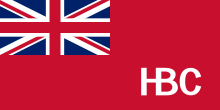Public Company (Canada)
The Corporation (Corp.) is the Canadian form of the stock corporation and is also the most common form of the corporation in Canada for small and medium-sized companies . It is one of four possible legal forms . The legal basis is the Canadian Stock Corporation Act , the Canada Business Corporations Act .
overview
The corporation belongs to the group of corporations. As a legal person , it is an independent legal entity. It can acquire property, enter into contracts and sue and be sued in court. In the event of a loss, the shareholders are only liable with the assets invested . The company name of the company must contain an addition identifying the legal form. Usually the suffixes Corporation or the abbreviation Corp. used common but are also Limited (Ltd.) , Limitée (Ltée) , Incorporated (Inc.) , Incorporée (Inc.) , société par actions de régime fédéral (SARF) . The corporation has the following versions:
Private Corporation
The private corporation or non-distributing corporation is the common form of business for small and medium-sized corporations. It can be founded by one or more people. The shares may not be offered to the public and cannot be traded on the stock exchange.
Public Corporation
The Public Corporation or Distributing Corporation is the common form of company for publicly traded companies. Therefore, it is subject to stricter reporting and reporting requirements.
Federal Corporation
Public companies in Canada may be incorporated under federal corporation or province or territory law. State formations are governed by the Canada Business Corporations Act , and formations under the law of a province or territory are governed by the corresponding regional laws. All joint-stock companies must also register in the province of their headquarters .
history
The first public companies in what is now Canada began operating as trading companies in the 17th century. In 1670 the Hudson's Bay Company - its full name was: Governor and Company of Adventurers of England trading into Hudson's Bay - was founded with a royal charter from Charles II . In their meetings, the general courts , they elected the chairman ( governor ), his deputy ( deputy governor ) and the board of directors, called the board of directors . The shares could only be sold with their approval and that of the governor, a provision that lasted until 1863. The charter granted the company a monopoly on trade with the Indians, particularly the fur trade , in the area that was irrigated by all the rivers that flow into Hudson Bay. The North West Company was founded in Montreal in 1783 and competed with the Hudson's Bay Company. The tension between the two companies became so great that there were various mutual raids on trading posts . In 1821 the two companies were merged. The Hudson's Bay Company is the oldest registered company in Canada and is now one of the oldest companies in the world.
The first stock exchange was formed on July 26, 1852 when a group of Toronto entrepreneurs gathered to form an Association of Brokers . The successor, the Toronto Stock Exchange , is Canada's largest exchange, the third largest exchange in North America and the sixth largest exchange in the world. The S & P / TSX 60 is the most important stock index on this exchange.
See also
Web links
- Corporations Canada: Guide to company formation ( English ( memento of October 17, 2015 in the Internet Archive ), French ( memento of October 17, 2015 in the Internet Archive ))
- Government of Canada: Entrepreneur Service ( English , French )
Individual evidence
- ↑ a b Canadian Government: Corporation, partnership, or sole proprietorship? Retrieved May 9, 2015 . , Société par actions, société en nom collectif, ou entreprise à propriétaire unique? Retrieved May 9, 2015 (French).
- ↑ a b Canadian Department of Justice: Canada Business Corporations Act. Retrieved May 9, 2015 . , Loi canadienne sur les sociétés par actions. Retrieved May 9, 2015 (French).
